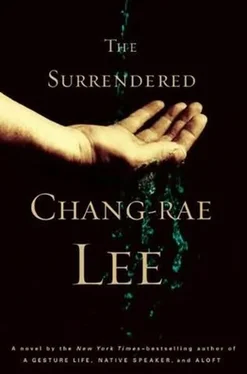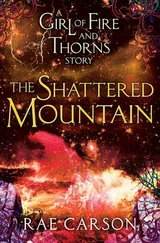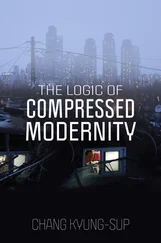And yet June would not yet speak aloud what they already knew was the truth. It was not for them she delayed, but for herself. She cast a stony front to the world but in her sleep’s throes it was for the moment vanquished and she was once again the child she had been on the eve of the war, a too-tall, soft-spoken girl of eleven who was content to play with much younger children, who was still too shy to look the village boys in the eyes, who wanted nothing more than to sit in her father’s lap and hum along with his records while he drew on his corncob pipe, the smoke hanging fatly and sweetly about them. And the deep warmth she felt was not of her sleeping siblings but the heat of the ondol floor nearest the kitchen hearth, where in winter she often lay with a book, the housekeeper stoking the fire so hot that June was sure she’d be seared to the tiles if she read another page. In her sleep she could still believe that all of them would eventually reunite, for she hadn’t actually witnessed her mother’s and sister’s deaths, or, for that matter, her father’s. And then, for all she knew, her older brother, despite the surety of her instinct, might very well be hiking north through the hills with the Communists, beleaguered but alive. This was the waking picture in her mind. And even if she knew that all of this was illusory, perhaps the most perilous kind of self-lie, the kind that made one giddy and angry and desperate all at once, she might still choose to crawl inside of it anyway for as long as she could, let it have her breath if it wanted, let it extinguish her outright.
Her chest heaved at the close, used-up air beneath the tight dome of the blanket, and she involuntarily turned from her siblings and craned against the corner of the fabric so that the wind rushed over her eyes and nose. The air was frigid and tainted by the coally exhaust of the locomotive but she took it in and let it flood her lungs. She shivered terribly. The night sky was dying, brightening quickly with the light. She was awake but did not yet want to open her eyes. She wanted to sleep, to sleep a little bit again. But the train suddenly and violently bucked, sending her hurtling against the metal rib on the front side of the well. She struck it headfirst and was dazed for a second and when she opened her eyes she was half hanging off the edge between the cars. The train lurched forward once more and then finally stopped. Her nose felt as if it was smashed. It was only when she checked her own skin for blood that she realized they were gone. Her brother and her sister. She peered down and saw the blanket draped over the coupling, their satchel broken open beside the shiny rail, their few worthless possessions scattered in the dirt.
She screamed: “Ji-Young-a! Hee-Soo-na!”
She climbed down the ladder and jumped to the ground. But they weren’t there, not on either side of the boxcars. They were in a wide, dusky valley, no buildings or houses or even a road within sight.
“Ji-Young- a ! Where are you? Hee-Soo- na ! Answer me! Answer me!”
She got on her knees and looked under the wheels but they weren’t there. Other people had climbed down as well and were running toward the rear; the train had rolled a short distance before halting, perhaps the length of three or four cars. Some terrible shouting came now, and June followed it even though it was a grown man’s voice, running in her bare feet-her shoes had come off-and when she came upon him he was grasping his arm in a funny way. He had been thrown off the train as well and had broken it, the lower part of his arm bent grotesquely backwards, as if he had an extra elbow. He asked her for help but she didn’t answer because she heard the report of Ji-Young’s voice weakly calling, Noo-nah , noo-nah .
He was two cars down, lying close to the train. A woman was kneeling before him. She didn’t see Hee-Soo. At first it looked as if the woman were fitting her brother for a shoe, but when June got closer she saw what had happened and stopped a few paces short, unable to move on.
“ Noo-nah …” Ji-Young said again.
“This is your little brother?” the woman said to June. June nodded.
“Then come here and help me! Well? Come on, girl, right now!”
June stepped forward and knelt down.
“When I say so, pinch his leg with your hands, here, just below the knee. As hard as you can.”
June readied her hands.
“Now!”
Ji-Young moaned sharply with the pressure, crying miserably. The woman seemed to know what she had to do. She kept telling him not to look down, to keep his eyes closed, saying there was nothing to see. June would always think later that that was perversely right: for his foot was gone. The amputation was very clean. The stump was bleeding fitfully, the flow alternately stanched and then surging as the woman tried to bind his thin calf with a belt. The light was coming up now and the blood showed its pure color, while all else-the woman’s clothes, the arid ground-was washed out, depleted. It was then that June looked away from the tracks and noticed a figure lying belly down near the weedy field. It was Hee-Soo; she could tell by her thick mop of hair. For a moment June was sure that she was all right because her face was turned to her and her eyes were open, her mouth in a faint, if somewhat confused, smile. But she was dead. Both her legs were cut off. She had crawled all that way, and all her blood had run out.
The wheels of the train squealed and it began to inch forward, as though the locomotive was now pushing off the rails whatever obstacle it had struck. Then the train stopped for a moment before moving again. The woman’s own children, who sat on top of the boxcar, yelled for her to get back on. But the woman couldn’t cinch the belt tightly enough, and Ji-Young was bleeding freely again. The train kept moving, a little faster now, and the woman’s children began to shriek for their mother, high panic in their wails. She looked June in the eye and said to her, “You should get back on, child.”
“Please help us.”
“I’m sorry… I’m sorry…” She got up, pausing ever so slightly, and then hustled to the car where her children were, climbing quickly aboard.
Ji-Young was quiet now, breathing shallowly, as though he wasn’t very pained at all. June wound the belt around his leg and looped it through itself before pulling on it as hard as she could. Ji-Young screamed and momentarily fainted. But the bleeding stopped, and with all her strength she lifted her brother and cradled him. He was no heavier than kindling. And she began to run. One of the boxcar’s doors was partly open and she could catch it and hand him up to the people packed inside. Some of them were waving her on, beckoning her. The train was speeding up, beginning to leave her behind. It was their only chance now. But it was then that the belt came loose from Ji-Young’s leg and slipped off. The blood poured out as if from a spigot and she squeezed the stump as she ran, but one hand wasn’t strong enough. She could not do it. So she halted and laid him on the ground, gripping the stump again with two hands. The cars were slowly rolling past them, only a third of the train remaining.
“How come you stopped?” he murmured.
“I can’t run anymore.”
“Oh.” He was losing consciousness, the color draining from his face. “Will you come back for me?”
June nodded.
“You promise?”
She nodded again.
“It’s okay. You don’t have to.”
She let go his still-warm hand, kissed his still-warm face. She stayed with him as long as she could. But when the last car of the train passed her she rose to her feet and steadied herself. And then she ran for her life.
Читать дальше











